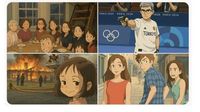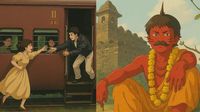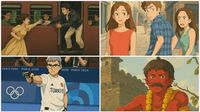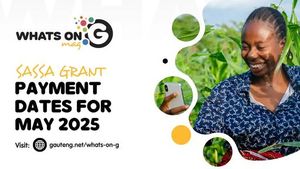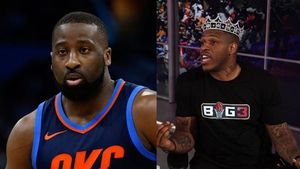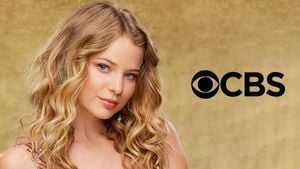OpenAI has officially launched its latest image generator, GPT-4o, which has quickly gained popularity for its ability to create stunning and photorealistic images. The new model, described as a "natively multimodal model," allows users to transform ordinary images into the iconic animation style of Studio Ghibli, a beloved Japanese animation studio known for its enchanting films.
Studio Ghibli, founded in 1985 by legendary animators Hayao Miyazaki, Isao Takahata, and producer Toshio Suzuki, has produced classics such as "Spirited Away" and "My Neighbor Totoro." The studio is celebrated for its intricate hand-drawn animations and emotionally resonant storytelling, which have captivated audiences worldwide.
Shortly after the release of GPT-4o on March 26, 2025, social media platforms were inundated with users showcasing their creations, including portraits of influencers, movie stars, and even pets, all rendered in the charming Ghibli style. Users like Mufaddal Durbar and Kaz shared their Ghibli-style transformations on X (formerly Twitter), with Durbar posting, "Iconic movie scenes, Studio Ghibli style. This is so much fun!" and Kaz expressing excitement about turning memes into Ghibli-style art.
OpenAI's CEO, Sam Altman, joined the trend, sharing his own Ghibli-style profile picture on X and humorously reflecting on the moment: "be me >grind for a decade trying to help make superintelligence to cure cancer or whatever >mostly no one cares for first 7.5 years, then for 2.5 years everyone hates you for everything >wake up one day to hundreds of messages: 'look I made you into a twink ghibli style haha.'"
However, the surge in Ghibli-style images has reignited discussions surrounding copyright and artistic integrity. Users have raised concerns about the potential legal implications of AI-generated artwork that mimics established artistic styles. One user remarked, "AI stealing the style of Studio Ghibli will be the last straw for many people who were on the fence about copyright. Just - stop." Another user pointed out the ease with which the tool allows for plagiarism of existing photos.
These concerns are not new; Hayao Miyazaki himself expressed strong disapproval of AI animation technology during a 2016 demonstration, stating, "I am utterly disgusted. If you really want to make creepy stuff you can go ahead and do it. I would never wish to incorporate this technology into my work at all," adding that AI-generated content is "an insult to life itself." The current wave of Ghibli-style AI images highlights the ongoing debate about the intersection of technology and artistic expression.
As demand for the Ghibli-style feature surged, OpenAI announced that access to the tool would initially be limited to premium subscribers of ChatGPT. On March 27, 2025, Altman confirmed that free users would have to wait for access, stating, "It's super fun seeing people love images in ChatGPT, but our GPUs are melting." He indicated that the company would temporarily introduce rate limits while working on efficiency improvements, noting, "ChatGPT free tier will get 3 generations per day soon."
In addition to the Ghibli-style feature, GPT-4o offers enhanced capabilities for accurately rendering text and following complex prompts, allowing users to create detailed images by simply describing their vision. This model can handle up to 20 different objects in a scene, making it a powerful tool for generating intricate visuals.
Barsee, the founder of AI Valley, remarked, "OpenAI has introduced new AI image-generation capabilities into ChatGPT and Sora through its GPT-4o model, allowing users to create and edit images directly within the chat interface." The updated image-generation abilities are now available to users across various subscription tiers, including ChatGPT Free, Plus, Team, and Pro.
Despite the excitement surrounding the Ghibli-style images, the ethical implications of AI-generated art remain a hot topic. As users continue to experiment with the tool, the question of whether AI can truly replicate the essence of human creativity looms large. The debate over copyright and artistic integrity is likely to intensify as more people engage with this technology.
For those who do not have access to OpenAI's image generator, there are free alternatives available, including Gemini, GrokAI, Craiyon, and Artbreeder, which allow users to create similar AI art without needing a subscription.
As the landscape of AI-generated art evolves, it remains to be seen how Studio Ghibli will respond to the growing trend and whether any legal actions will be pursued against OpenAI. In the meantime, the fascination with Ghibli-style art continues to flourish, captivating users and sparking discussions about the future of creativity in the age of artificial intelligence.
